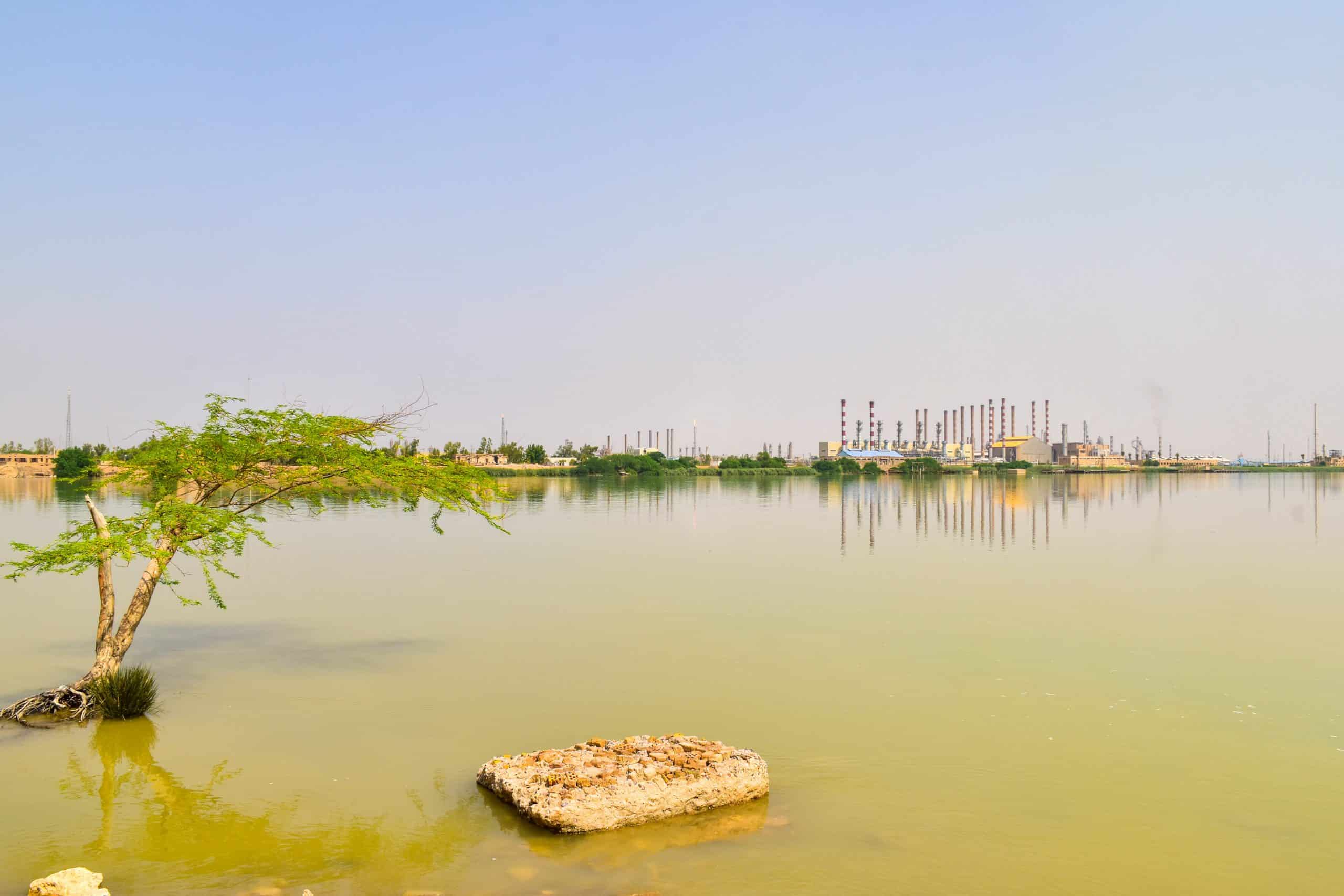Throughout history, conflicts over valuable resources such as diamonds and oil were ever-present. Over the past three years, however, Iran and Iraq have become embroiled in a dispute over a different kind of resource, which has recently become more scarce — water. The ongoing tensions are already having a significant impact on the livelihoods of Iraqis and the country’s economy and public health system. As the risk of a full-blown conflict and the scarcity of water continues to increase, the West must do more to combat Iranian influence in Iraq.
For almost a decade, Iran has been in the midst of a water crisis, which experts project could result in a significant water shortage by 2036. Despite this looming problem, Iranian policymakers have sought quick-fix solutions, such as building large dams and instituting water transfer projects. In 2019, for example, Iran announced that over the next two years, it would begin building 109 dams along the country’s western border with Iraq as part of a large-scale irrigation effort that seeks to augment Iranian agricultural production. The program, which Iranian President Hassan Rouhani champions, would build dams that would redirect water from the Tigris and Euphrates rivers. Extra water in dam reservoirs will be transported to regions of the country that are vulnerable to drought. However, Iraq relies on the Tigris and Euphrates rivers as its water source for 90% of its freshwater. Baghdad has also been suffering from water shortages over the past several years. Iran’s decision to redirect water from these sources has sparked significant tensions as water shortages become increasingly common.
According to regional experts, water flow to Iraq has decreased significantly over the past few months. In August 2020, reports indicated that Iran had limited water flow to Darbandikhan dam, an embankment which Iraq relies on to maintain the supply of water. Approximately two million people in Iraq rely on the Tigris and Euphrates rivers to sustain their livelihoods and fuel agriculture, fishing, tourism, power production, and more. Almost 100,000 residents of Iraqi Kurdistan depend on the rivers for farming, and the Kurdistan Regional Government (KRG) has expressed its discontent to Iran numerous times. According to experts, Iran’s actions have already resulted in water shortages and agricultural damage. Indeed, the consequences of Iran’s redirection of Iraq’s water supply is set to have a profound impact, and many of these negative effects are already visible today.
In addition, Iraq is currently experiencing record-breaking heatwaves, and a water shortage at this pressing time could therefore prove disastrous. Also, like many other countries in the region, Iraq is struggling to contain the spread of the coronavirus and other diseases within its borders. Water is integral to maintaining good hygiene and remaining hydrated, as such the ongoing water shortages threaten to deepen the already damaging public health crisis in Iraq.
Iran’s decision to divert water supply away from Iraq will also have profound political and social effects. Over the past few decades, Iraqis living in border cities neighboring Iran have generally viewed it favorably, as Iran stepped in to save the residents of Halabja after Iraq’s former dictator Saddam Hussein led one of the world’s worst chemical attacks on the city. However, the ongoing dispute around access to water will surely undermine the trust these Iraqis have built with Tehran and will undoubtedly fuel animosity.
If Iran continues to divert significant amounts of water from Iraq, biodiversity and wildlife will radically transform drastically. Water shortages will also impact the tourism and agricultural sectors, sending shockwaves throughout Iraq’s struggling economy. Affected communities will likely need to migrate, potentially causing internal tensions.
Over the past few years, Iran has increased its involvement in Iraq’s domestic affairs, heightening tensions between the two nations and fostering an intense desire among Iraqi’s to establish a greater sense of sovereignty. In response to the ongoing water disputes, the Iraqi government and KRG have issued statements calling on Iran to stop violating international norms and laws by diverting water from the two shared rivers. Iraq’s Water Resources Minister Mahdi Rashid al-Hamdani has also threatened to file a complaint with the UN over Iran’s failure to engage in constructive dialogue over the situation. Despite these efforts, Iran has not yielded and continues to push forward with its plans to build more dams. It is suggested that Iran is seeking to use the existing water blockade to strong-arm Iraq into supporting Iran against ongoing sanctions regimes in the international arena. This has caused significant uproar in Baghdad and the country’s leaders have further emphasized the need to break away from Iran’s toxic grip.
Iran and Iraq’s continuous grapple over water could lead to the region’s next major conflict. For Iraq to not fall between the cracks and overcome poverty, the international community must play an important role here, especially when enforcing international law and norms.



















